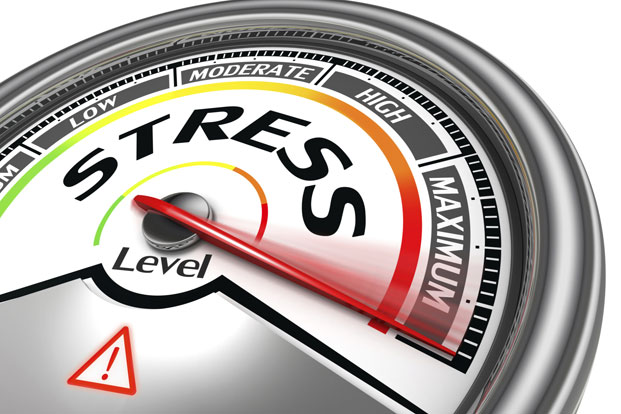Stress — it seems like an unavoidable, everyday occurrence. However, some experts say that it’s actually killing us.
According to The American Institute of Stress (AIS), 10 percent of all strokes are related to work-related stress. The AIS says that stress causes 60 percent of all illness and disease. And three-fourths of all doctor’s visits are said to be somehow stress-related.
Yikes!
As if that’s not eye-opening enough, there’s something else to know. Stress appears to be on the rise. According to the AIS, 44 percent of us are more stressed than we were five years ago. Further, it appears that we’re working harder for less money, which adds to stress.
Are you ready to learn more about stress? Here are 10 facts you need to know.
1. Not all stress is considered “bad.”
According to the National Institute of Mental Health (NIMH), animals have a natural response to stress that exists for a reason. This is what many call the “fight-or-flight” response. It’s there to alert you of emergencies.
When the body kicks into this mode, it releases chemicals and hormones that prepare you for danger. This is what makes humans feel almost superhuman when a perceived threat occurs. As a result, the heart speeds up, you breathe rapidly, and muscles tighten up. Your immune system is even said to respond. When the perceived threat has ended, your body goes back to normal.
2. There are three types of stress.
According to the NIMH, there are three types of stress. Each of these can have an impact on both physical and mental health.
The first type of stress is called routine stress. This comes as a result of stress at work, home or due to other daily issues. The second type of stress comes as a result of change that happens quickly. This is defined as stress related to job loss, divorce or becoming ill. The third type of stress is called traumatic stress. Examples of this type of stress include an accident, war, being assaulted or a natural disaster.
3. The body reacts to all three types of stresses similarly.
According to the NIMH, the body reacts similarly to each of these three types of stress. That said, you may notice this reaction differently than someone else. Some may get an upset stomach, but others may experience insomnia, and others may become angry or depressed.
4. Stress can affect the immune system.
The NIMH says chronic stress can elevate the chances of getting the flu, a cold or other virus. In addition, stress can make vaccines less effective.
5. The effects of stress increase as time passes.
The health effects of stress may not be present immediately. For example, heart disease may not occur for years. This can make for an unpleasant surprise when it comes to health issues that develop many years down the road.
6. There are two factors that play a part in how you respond to stress.
According to the Mayo Clinic, two things can affect how you respond to stress. These two things are genetics and life experiences.
There are genes that play a part in how we respond to stress. Most of the time, we are calm, and the body kicks into fight-or-flight just once in a while. However, if we overreact or underreact to stress, this may be a result of genes.
Life experience also plays a part in how we handle stress. For example, reacting to something in a stressful way may be a result of trauma. This is why abuse victims, crash victims and even police officers may experience stressful reactions related to trauma.
7. Stress can be bad for your health.
According to the Mayo Clinic, being in flight-or-flight mode often can be bad for your health. It causes cortisol and other stress hormones to stay elevated. Consequently, the risk of a number of health problems increases. Examples of health risks include anxiety and depression, digestive issues, heart disease, insomnia, weight gain, and issues related to memory and the ability to concentrate.
8. It’s sometimes necessary to seek professional help.
According to the NIMH, there are some important circumstances in which you should seek professional help. For example, if you experience suicidal thoughts, you should get help immediately. Seek professional help if you simply can’t cope, feel consistently overwhelmed, or are turning to drugs or alcohol to handle stress.
9. Friends and family can help you to cope with stress.
When it comes to dealing with stress, it’s important to reach out to others. Isolation will only make stress worse. The NIMH suggests reaching out to friends, family, clergy or community organizations for help. For example, if you’re caring for a sick parent, your church may be able to help you to plan meals to help you deal with the situation at hand.
10. There are steps you can take to cope with stress in a healthy way.
There are a number of ways you can deal with and decrease stress.
The first is setting priorities. According to the NIMH, this can be done by deciding what needs to be done now and what can be done later. Make it a point to say no to things that aren’t crucial that will add to your stress level.
Second, give yourself credit where credit is due. Give yourself a thumbs up for what you have accomplished instead of beating yourself up for tasks you didn’t complete. In addition, try not to run problems over and over in your mind.
Third, exercise consistently. According to the NIMH, a half hour of simple daily walking can both lower stress and elevate mood. Make it a point to add enjoyable activities to your life. And look into new options that may help — like yoga, meditation or tai chi.

Leave a Reply